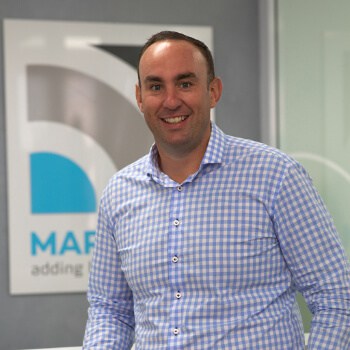The engaging and inspiring Glen Sharkey joins us for an invigorating discussion on ‘above the line’ mentality. He talks about the issues we should take responsibility for, and the issues we could take responsibility for. How do we approach situations where something’s gone wrong, and it wasn’t actually your responsibility? How can we set parameters, within a team, to have these conversations? Plus some suggested reading, and don’t forget the quote by Zig Ziglar, “A positive attitude will always bring about a better outcome than a negative attitude”!
Working Above the Line

Invisible Strength
Working Above the Line
/
RSS Feed
Working Above the Line
Glen Sharkey’s speaking website glensharkey.com
… coaching website thelifeworkscompany.com
… list of books thelifeworkscompany.com/resources
… and LinkedIn profile linkedin.com/in/glensharkeyspeaker
“How to Win Friends and Influence People” worldofbooks.com/en-au/books/dale-carnegie/how-to-win-friends-and-influence-people/9780091906818
“The Oz Principle” worldofbooks.com/en-au/books/roger-connors/oz-principle/9781591843481
“Why I, as a Black Man, Attend KKK Rallies” ted.com/talks/daryl_davis_why_i_as_a_black_man_attend_kkk_rallies
View the Transcript
HAYDEN: Hey there, everybody! Welcome to this latest podcast of MARKHAM’s series, Invisible Strength. And it’s a special day today. Beautiful Wednesday in Napier and I’ve got Glen Sharkey with me, and we’re going to be talking about Working Above the Line. So that’s about, you know, the invisible strength, that’s the glue, the culture, the attitude of living and working above the line.
So Glen’s a motivational speaker. He obviously works with people, challenging them to lead better professional and personal lives; and obviously, we all trying to get into that space as humans. So he is also the author of a number of books and especially in this field. There’s some great ones, “Little Red Racing Hood”, “The Motivation Equation”, and “The Art of Persuasive Influence”. I think they’re brilliant titles for a start! So Glen, welcome aboard, tell us about yourself, your background, where you’ve come from and how you work with people, what you offer. Go for gold!
GLEN: Thanks very much, Hayden, and it’s great to be part of this podcast. A lot of my work is in the leadership space. The first ten years of my work life was with training at-risk youth in vocational skills. Then ten years of leadership roles in various not-for-profits; and in the last fifteen years back in the corporate world, doing a lot of leadership training; particularly for emerging leaders, so those who are new to leadership.
And I have produced, I think seven books, authored seven books, and the latest was “Navigating Courageous Conversations”, which is such a need in the business world. And it was a response to that need. And I’ve got a new book that I’m working on at the moment, “People Leadership 101 – What Emerging Leaders Wish They Had Been Told” because so many people end up in the deep end of leadership roles with very little prep.
But who am I really? I’m a guy that’s been happily married for 31 years. I think that’s my biggest achievement above any awards that I’ve won as an educator or proficient speaker. I have three fantastic adult children, and we were blessed yesterday to have a granddaughter join our family!
HAYDEN: Congratulations!
GLEN: Yes, it was a great day for us! And on top of that, you know, we talk about living above the line, I’m really one for taking responsibility for my own health and fitness so fortunate enough to have a fantastic home gym set up, particularly with us being in Level 4 [lockdown] and now Level 3 in Auckland; and still playing football at the ripe old age of 56!
HAYDEN: Fantastic, no, that’s brilliant. And I’m just picking up on what you’re saying. You know these current conditions. It could cause us to fall below the line if we let it affect us, couldn’t we? You know, we can start blaming stuff, all these things. But to get up and be positive and take account, take ownership, and be open, and talk and communicate. I think it’s good. So really impressed with your approach on that. So tell us a little bit more about what you mean about, what it is to be above the line?
GLEN: Well, I guess … look if I… I know we’re on a podcast here, but if our listeners could imagine this: I’m drawing a line across the centre of the page, but in the middle of that line I’m writing the word ISSUE. And really, the above and below the line model starts when we’re presented with an issue that we could or should take responsibility for. Of course, the ones that we should take responsibility for we should be sticking up to the mark, but it’s also the issues that we could take responsibility for.
‘Below the line’ behaviours are defensiveness; as you said, blame, blaming others, making excuses, deflecting responsibility, saying that’s not my job – that would be a classic ‘below the line’ response in the work world.
‘Above the line’ is pretty simple. Firstly, I’ve become aware of that issue that I could or should take responsibility for. And then I take ownership for it. I accept ownership to the extent that I can, and then I take some kind of action that culminates in some kind of a result.
When we go below the line, that actual issue that we started with gets worse. It gets more complex, and especially, Hayden, trust in working relationships goes down. Whereas if we go above the line then it makes the issue… at least doesn’t make it worse, it often makes it better, and trust in relationships increases. I’m a huge fan of living and leading above the line, both in my personal life and in my professional life, and I can’t encourage people enough to, when and where possible, live above the line.
HAYDEN: Yes, absolutely. And I mean … you mentioned still playing football; and that, you know, into the teams and things taken, accountability, ownership. I mean, obviously, things are going to come in and can disrupt, and there’s issues in our lives, and our personal lives, in our work lives. You know, you haven’t had a great day and there’s something inside, slams you in the side of the face. But it’s how you react, isn’t it? So, and, again with your team.
Tell us a little bit about how it affects teamwork, that sort of thing.
GLEN: Look at, you know, the team that I’m most involved with now is my football team, on a regular basis, and you know, when the referee is making decisions that I don’t like, we … you know, we play in a league where we’re often refereeing our own games and it’s natural for the opposition referee to have some degree of bias, whether it’s conscious or unconscious. And it would be really easy for me to slip below the line, slip below the line, and start to become accusatory. But instead, I go, OK. What can I do to take responsibility for this ref making biased decisions? And so it alters my attitude, it alters the way that I speak to the ref, it alters the way that I speak to other players, and ultimately it stops me, because if I get in the ref’s bad books by having a go at him, then I’m going to get more decisions going against me, going against my team. But if I can go, OK, what are the small things that I can do to influence the referee?
And it all starts with me having an above the line attitude, not getting defensive. Not getting aggressive; and accepting the fact that I can take some responsibility for this issue and have some degree of influence.
I remember…
HAYDEN: And then…
GLEN: Yes, you go.
HAYDEN: No, I was just going to say, and at times, even taking responsibility when you know it’s, you know, you might not feel it… it’s nothing to do with you, right? But you own that situation and that’s when you’re really above the line, is it?
GLEN: Yeah, because it makes things it makes everything better. Let me give you an example, years ago I was working with a contract manager and he sent out, he got his project manager to send out an email; I was copied into the email, several of us were, and also the client, the external client was copied in. Now I replied; I hit reply-all; and let’s say that, Hayden, I was working with you. I made a bit of a comment, I made a bit of a joke in that email that I knew that you would have found funny, and we had a good working relationship.
Now that contract manager left me a really serious, almost nasty answer phone message saying, “Hey Sharkey replied-all to that email, and you made a really inappropriate joke. That was an unprofessional remark, and you copied in the client. That’s really unprofessional, and I’m really disappointed.”
Now here’s the thing Hayden. He had not taken the time to check the address list and had not noticed that I had deleted the client’s contact name from the email when I hit the reply-all. Not only that, but you, I and the client had worked together in the past, and I knew that she would have been absolutely fine with the joke.
But if I go get defensive and I go below the line, I know it’s going to make that issue worse, and it’s going to make trust in the relationship diminish. It’s not an issue that I should have taken responsibility for, but it’s an issue that I could have taken responsibility for and ownership of. So I didn’t send him an email, I didn’t respond with an answer phone… sorry; I couldn’t see him face to face; so I called him up and I said “Look, firstly, I’m prepared to apologise by email to the team; secondly, I’m prepared to apologise face to face with the team, also with the client, in the room when we meet for our meeting. Let me know, let me inform you that I have actually, I actually had deleted the client’s email address when I hit reply-all. So it’s OK, it’s safe. I haven’t done any damage, but still. Would you like me to apologise?”
And he said, “No, no, I don’t think that’s necessary, but…” And this is really interesting, he said “I do think you need to maybe watch the tone of your emails.”
And I had done a little bit of thinking beforehand, and I thought, why is he overreacting? and maybe this, so maybe there’s a message in here that I should be taking responsibility for. And so I went entirely above the line and said, “You know, I’m prepared to apologise but look, I haven’t done any damage.” But even when he gave me that feedback, I said “Yes, I get it. I appreciate that. Thanks for the feedback.”
And still, to this day we have a really good relationship. We haven’t worked together for years, but we’re still good friends because that was an opportunity to build trust or really destroy trust in our relationship. And I’m so pleased that I made the decision to go above the line, when I could have justifiably gone below the line, in being really defensive.
HAYDEN: Yes, and how often do we do that, just go into defence mode and there we go. Yes, I mean it’s a great example, great story because I think probably most of us that are listening to this will, would have done that, sent an email back, and we’re supposed to just reply, and we replied-all. But it’s not the mistake. It’s not that issue, is it, that’s the problem. It’s how you mend that, or how you own that, isn’t it? And sometimes it may be just, hang on, let me think about this. And sometimes we rush in far too fast, and that’s when we don’t, we get on the wrong side of the line, do you think?
As individuals, as work teams, as individuals in our lives, what’s some tips to spot, maybe, that below the line behaviour and give it a nudge upwards?
GLEN: What I love about the above the line concept is that the language is so neutral. And so the first thing that I would say to teams is, get a corporate understanding of above and below the line behaviour, and how corporately as an entire organisation we find below the line behaviour unacceptable, so have everyone understand the concept to start with and then have everyone buy-in.
When that’s happened, let me give, let me give you an example. Hayden, I see you acting, in our team, a little bit below the line. And if we’re not aware of this at all, and I go and I speak to you, and I say, “Hey, hey mate, you’re getting really defensive. And I notice that you’re blaming the client, when I know they haven’t been perfect. But really, I just think you need to pull your head in a little bit”.
If I go and approach you without us having any corporate understanding or agreement on above and below the line, then I can simply be another one attacking you for what you think is justifiable behaviour. Whereas if we’ve sat down away from the heat of the battle, and we’ve discussed and agreed with this as an entire team, then when I see you behaving like that, I say to you, “Hayden, I wonder if you’re being a little bit below the line?” and then it’s not primarily me coaching you or telling you how to do life. It’s me reminding you what you already signed up to a month ago when we talked about this above and below the line model away from the heat of the battle and everyone went “Yes, yes, that makes sense. I totally agree with that.”
So when I remind you using that neutral language of above and below the line, I’m actually reminding you to self-coach yourself based on a model that you agreed with prior to us having this conversation.
HAYDEN: Which really, in effect, lifts that person to think about their own actions, doesn’t it? If you say that to me, I’d say, OK, what is that? – then start taking ownership. But that’s good, I like that approach. But like you say, you’ve got to have that clear expectation, that guideline set at the start that you set together, right? And then you both know where you fall into it. That’s good.
Is it, would people consistently live one side or the other? Or would you… you must have dips and chops and highs. What … tell me about that.
GLEN: I know that there’s a bunch of people who would look at me and say, “Hey, you’re from West Auckland originally! So you guys are below the line, aren’t you?!” Look, I think there are some people who habitually live below the line. I think, Hayden, that our family of origin is often a good place to start.
So when asking myself, am I someone who has some, who has some habitual below the line practices? Well, I can look back to my family and go, No, my family was really good at taking responsibility. We had a pretty good mindset. We tended to focus on the positive more than the negative.
If you grew up in a great family, then you are probably going to struggle with this issue, of above and below the line, less than someone who grew up with a mom or dad who was particularly below the line. I mean you’re going to be starting on a hiding to nothing if you grew up in a family that was really below the line.
So it’s a good question to ask yourself first; am I someone who is above or below the line? Am I from a family of origin that is above or below the line? It’s a real clue that you need to do some work.
Secondly, I think it’s the idea that you commit to this concept of, being above the line that makes everything better. I love that saying by Zig Ziglar, “A positive attitude will always bring about a better outcome than a negative attitude.” So there’s that commitment to thinking and speaking and living above the line.
Now when we’re dealing with people, we have to give people the benefit of the doubt, because in my example that looks like a really, or that looks really marginal, you know. Oh, you just… how do we decide whether people are above or below the line? So I’m leading a team member and having to have a difficult or courageous conversation, then we give people the benefit of the doubt.
People have to be clearly below the line before we treat them as such. If we’re in doubt and we give them the benefit of the doubt, and we assume that they are above the line; that they are wanting to be above the line. But again, if you’re approaching someone who is particularly, habitually below the line, then I think education is really important.
Get them if they haven’t, get them to look at books like “How to Win Friends and Influence People.” The book that popularised the above and below the line model is called “The Oz Principle”. My own book, “The Art of Persuasive Influence”, talks about the above and below the line. You’ve got video, free video resources on YouTube now; and I think it’s really useful for people who have a habit of thinking and acting below the line that has decades-long, that they expose themselves to examples of people who have been below the line, and who have now turned their thinking above the line. And I would point people in the direction of the Ted talk by Darrell Davis called “Why I Attend KKK Rallies as a Black Man”, I think it’s the best and most stunning example of someone turning their mindset around, from being below the line through above the line.
HAYDEN: Yes, I’ve listened to that one. It’s a brilliant, yes, fantastic example there. But yes, that’s really, really good; and it’s really, it’s a choice, isn’t it? As we get up in the morning, it’s a choice what, Where am I going to live today? Am I going to be above, or am I going to be below? You’re sometimes, you might be running late or whatever, but don’t let that affect your whole day, right? It might just be one little issue that we’ve drawn in the middle of the board; choose which side to angle it from.
That’s brilliant, it’s really, really good. It’s good information, and thanks for coming on. So a lot of our listeners will be wondering how to reach out to you, as well, Glen. Tell us what’s the best way to approach you for more information, or for a motivational speech, or whatever we want to get you going with.
GLEN: Sure! Well, you can just Google search now and people come up pretty quickly, especially when your name as unusual as Glen Sharkey is in the professional speaking field! My website, my speaking website is glensharkey.com; that’s Glen with one N, and Sharkey, K-E-Y; and my training. my workshops, my coaching website is thelifeworkscompany.com. But again, if you look at me on LinkedIn you’ll be able to find me there via my profile.
HAYDEN: Absolutely; or otherwise, if you want to just come back through MARKHAM, we’ll put you in touch quickly as well. But yes, now fantastic. It’s been really good. I love this topic. Any closing comments before we close out?
GLEN: Yes, if you are someone who lives below the line, and you’re sick of it, then simply Google “Living above the line” and there are some tremendous resources online that will help you out with that. If you are dealing with someone who is habitually below the line, and they have some real blind spots, then think what ways you can help educate them. Because you know, Hayden, you talked about we all have a choice. Well, some people have lived so far and for so long below the line, they don’t have the same perspective and clarity of perspective as you and I do. And so education is a great way to help give people the choice of living above or below the line.
HAYDEN: Fantastic, brilliant, even some visual cues or someone around your office; in your room or in the living room at home or something, just a little thing to remind you, Where am I living today? Yes, I think it’s good.
I really enjoyed this, and really enjoyed listening, and I’m sure all the audience would have too, there’s some practical tips in there for everybody. Thanks very much. Thanks for joining, and join us on the next episode!
GLEN: Thanks, Hayden!
Want to Contribute?
Feedback on our podcasts? Suggestions for future topics? Looking for more information on topics we’ve discussed? Send us a message – we’ll be in touch within a day or two.
More about MARKHAM
MARKHAM are dedicated to providing innovations for concrete and construction. Focusing on concrete waterproofing solutions, penetrating concrete sealers and durability treatments for concrete.
Podcast Categories
Latest Episodes

Doug & Laike Share Their Week – Western Australia, Christchurch, and a Focus on Low Carbon Concrete
Laike and Doug wrap up their week again with a 10-minute chat. They’ve each been

Doug & Henry Share Their Week – R&D, Melbourne Traffic, Basement Waterproofing, And ‘CONQOR Your Health’
It’s Henry’s turn to join Doug in the podcast studio – in person this time!

Doug & Laike Share Their Week – Seychelles, Readymix Plants, And A Bike Ride
Once again Doug and Laike sit down for a 10 minute recap from the week.
invisible strength podcast
The whole MARKHAM team is pleased to present you with our podcast series, INVISIBLE STRENGTH. In this series of interviews, we’ll walk through the science and challenges of concrete durability, what goes wrong in the field – and the advanced methods available to restore and enhance service life to concrete construction.
INVISIBLE STRENGTH reflects a number of factors in concrete construction and durability. When things go wrong, the evidence can become very visible indeed. However, when all is going well, there’s nothing particular to be seen!
MARKHAM’s concrete treatments, too, are invisible once completed – and the result is the long internal, invisible durability of the concrete.
So join us as we explore the unseen world inside concrete – why it matters, and how it can be protected!

